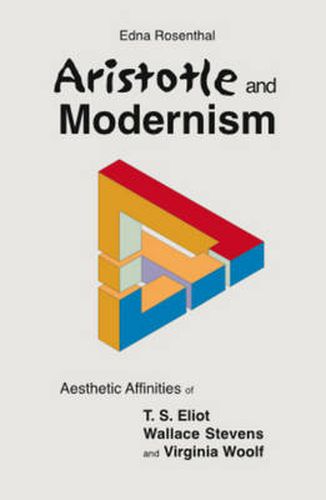Readings Newsletter
Become a Readings Member to make your shopping experience even easier.
Sign in or sign up for free!
You’re not far away from qualifying for FREE standard shipping within Australia
You’ve qualified for FREE standard shipping within Australia
The cart is loading…






Examines literary modernism in its relation to the history of criticism by analysing the role of Aristotelian principles, primarily the notion of formal affectivism, in the critical writings of these three modernists who have invariably been thought to uphold incompatible aesthetic beliefs: whereas Eliot saw himself as a classicist modernist, Stevens and Woolf shared a marked anti-classicist stance. Despite their initially incompatible attitudes to literary history and criticism, this study discloses their convergence on the Aristotelian notion of formal affectivism, demonstrated through specific conceptual shifts. The main feature of the book is its originality of approach, which seeks a ‘diachronic’ solution to a ‘synchronic’ problem – the debate about the Modern, reflected in the claims and counterclaims made by the modernists themselves and by subsequent literary critics and theorists. This methodology was largely dictated by the nature of the subject: the adversarial critical orientation of three modernists, who have never been studied as a group before, and the attempt to reconcile their differences by reconfiguring them in terms of the Aristotelian critical tradition. The author demonstrates conclusively how Eliot incorporated central Aristotelian dramatic principles into his view of literary history and criticism, and, similarly, how both Stevens and Woolf, through historically determined conceptual shifts, endorse and use formal affectivism and dramatic criteria, which, as may be expected, they almost never refer back to Aristotle or to his foremost modernist defender, Eliot.
$9.00 standard shipping within Australia
FREE standard shipping within Australia for orders over $100.00
Express & International shipping calculated at checkout
Examines literary modernism in its relation to the history of criticism by analysing the role of Aristotelian principles, primarily the notion of formal affectivism, in the critical writings of these three modernists who have invariably been thought to uphold incompatible aesthetic beliefs: whereas Eliot saw himself as a classicist modernist, Stevens and Woolf shared a marked anti-classicist stance. Despite their initially incompatible attitudes to literary history and criticism, this study discloses their convergence on the Aristotelian notion of formal affectivism, demonstrated through specific conceptual shifts. The main feature of the book is its originality of approach, which seeks a ‘diachronic’ solution to a ‘synchronic’ problem – the debate about the Modern, reflected in the claims and counterclaims made by the modernists themselves and by subsequent literary critics and theorists. This methodology was largely dictated by the nature of the subject: the adversarial critical orientation of three modernists, who have never been studied as a group before, and the attempt to reconcile their differences by reconfiguring them in terms of the Aristotelian critical tradition. The author demonstrates conclusively how Eliot incorporated central Aristotelian dramatic principles into his view of literary history and criticism, and, similarly, how both Stevens and Woolf, through historically determined conceptual shifts, endorse and use formal affectivism and dramatic criteria, which, as may be expected, they almost never refer back to Aristotle or to his foremost modernist defender, Eliot.